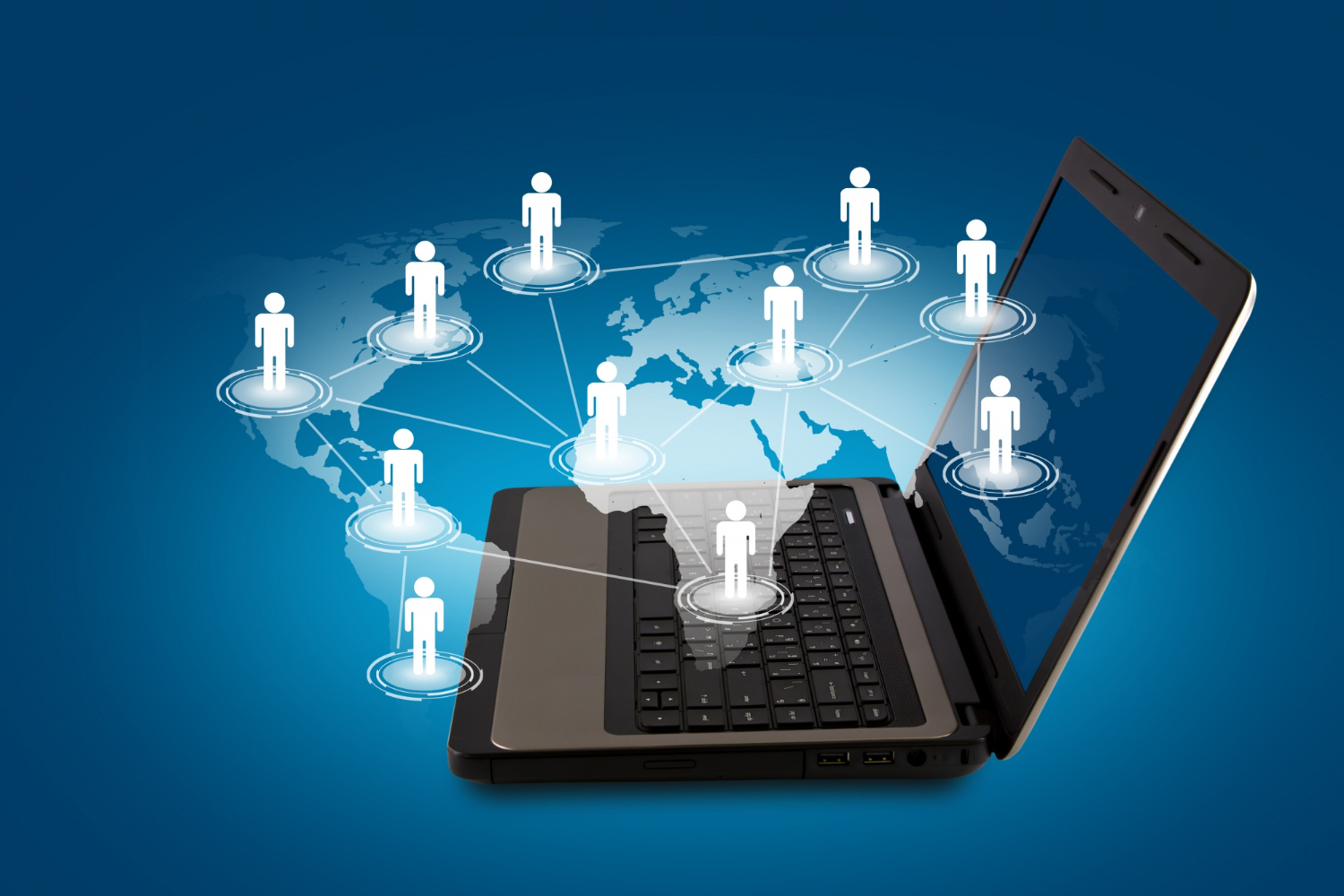The internet has transformed how we connect, communicate, and collaborate across borders. Discover how it fosters a global community that transcends geographical barriers.
The internet is pivotal in shaping a global community in today’s digital age. It connects people from different cultures and backgrounds, enabling communication and collaboration on an unprecedented scale. As we navigate through this interconnected world, it’s essential to understand how the internet fosters inclusivity, facilitates knowledge sharing, and drives social change. This article will delve into the multifaceted role of the Internet in shaping a global community, focusing on its influence across communication, education, activism, and beyond.
1. The Evolution of Communication
A Shift from Local to Global
The internet has revolutionized communication. Traditional means of communication, like letters and landline calls, were often limited by distance and time.
- Instant Messaging: Today, WhatsApp and Messenger allow real-time conversations worldwide.
- Social Media: Sites like Facebook and Twitter enable users to share experiences and ideas with a global audience.
This shift has made it easier for individuals to connect with others, regardless of their physical location, fostering a sense of belonging and community.
The Impact of Social Media
Social media platforms have played a significant role in dismantling geographical barriers.
- Global Networking: Users can connect with people from different countries and cultures, broadening their perspectives.
- Cultural Exchange: Sharing cultural practices, traditions, and languages has become commonplace, promoting understanding and appreciation.
As a result, social media has become a tool for building relationships across borders, creating a more interconnected global community.
2. Access to Information and Education
Bridging the Knowledge Gap
The internet has democratized access to information, making education more accessible than ever.
- Online Learning Platforms: Websites like Coursera and Khan Academy offer accessible or affordable courses, enabling learners from various backgrounds to gain knowledge.
- Open Educational Resources: Many institutions provide free resources, allowing anyone with internet access to learn.
This accessibility empowers individuals, fostering a sense of agency and participation in a global community.
The Role of Libraries and Archives
Digital libraries and archives have made vast amounts of knowledge available to everyone.
- Global Resources: Users can access materials from different cultures and histories, promoting cultural literacy.
- Research Collaboration: Scholars can collaborate across borders, sharing findings and insights contributing to global knowledge.
These resources enhance education and encourage a shared understanding of our diverse world.
3. Driving Social Change and Activism
The Internet as a Tool for Activism
The internet has become a powerful platform for social change.
- Grassroots Movements: Campaigns Matter gained momentum through social media.
- Global Awareness: Climate change and human rights are now widely discussed worldwide, mobilizing people to act.
This connectivity empowers individuals to advocate for change, fostering a sense of global responsibility.
Case Studies of Successful Activism
Several movements illustrate the internet’s power in driving social change.
- Arab Spring: Social media was crucial in organizing protests and spreading information during uprisings in the Middle East.
- Climate Strikes: Young activists have utilized online platforms to rally support for climate action, engaging millions worldwide.
These cases demonstrate how the internet can amplify voices and drive collective action toward a shared goal.
4. Economic Opportunities and Collaboration
The Rise of the Gig Economy
The internet has opened up new economic opportunities, creating a global marketplace for skills and services.
- Freelancing Platforms: Websites like Upwork and Fiverr connect freelancers with clients worldwide, allowing for diverse job opportunities.
- Remote Work: Companies can hire talent from anywhere, fostering a more inclusive workforce.
This economic shift promotes collaboration and innovation, driving a sense of community among workers from different backgrounds.
The Importance of E-commerce
E-commerce has transformed how businesses operate.
- Global Reach: Small businesses can now sell products internationally, expanding their customer base.
- Cultural Exchange: Online marketplaces allow consumers to discover and purchase goods from different cultures.
These developments boost economies and foster connections between consumers and producers worldwide.
5. Fostering Inclusion and Diversity
The Internet as a Platform for Marginalized Voices
The internet allows marginalized groups to share their stories and experiences.
- Blogs and Vlogs: Individuals can express themselves and raise awareness about social issues affecting their communities.
- Support Networks: Online communities offer support and resources for those facing discrimination or exclusion.
This visibility promotes understanding and empathy, contributing to a more inclusive global community.
Challenges of the Digital Divide
Despite the internet’s potential, challenges remain.
- Access Inequality: Only some have equal access to the internet, leading to disparities in knowledge and opportunity.
- Language Barriers: The predominance of English online can marginalize non-English speakers.
Addressing these challenges is vital for ensuring the internet is a trustworthy global community-building platform.
6. The Future of Global Community Building
Innovations in Technology
Emerging technologies are set to enhance the Internet’s role in community building.
- Virtual Reality (VR): VR platforms can create immersive experiences that connect people in new ways.
- Blockchain Technology: Decentralized platforms can empower users and promote transparency.
These innovations have the potential to redefine how we interact and collaborate globally.
The Role of Policy and Governance
As the internet evolves, so must the policies that govern it.
- Digital Rights: It is crucial to ensure everyone has Internet access and the right to express themselves online.
- Cybersecurity: Protecting users from online threats is essential for fostering a safe digital environment.
Addressing these issues can create a more equitable and secure global community.
Final Thoughts
The internet has undeniably transformed our world, fostering a global community transcending borders. It enhances communication, democratizes education, drives social change, and creates economic opportunities. As we progress, it is crucial to address the remaining challenges, ensuring that the Internet serves as an inclusive platform for all. By embracing the internet’s potential, we can continue to build a vibrant global community that celebrates diversity and collaboration.

